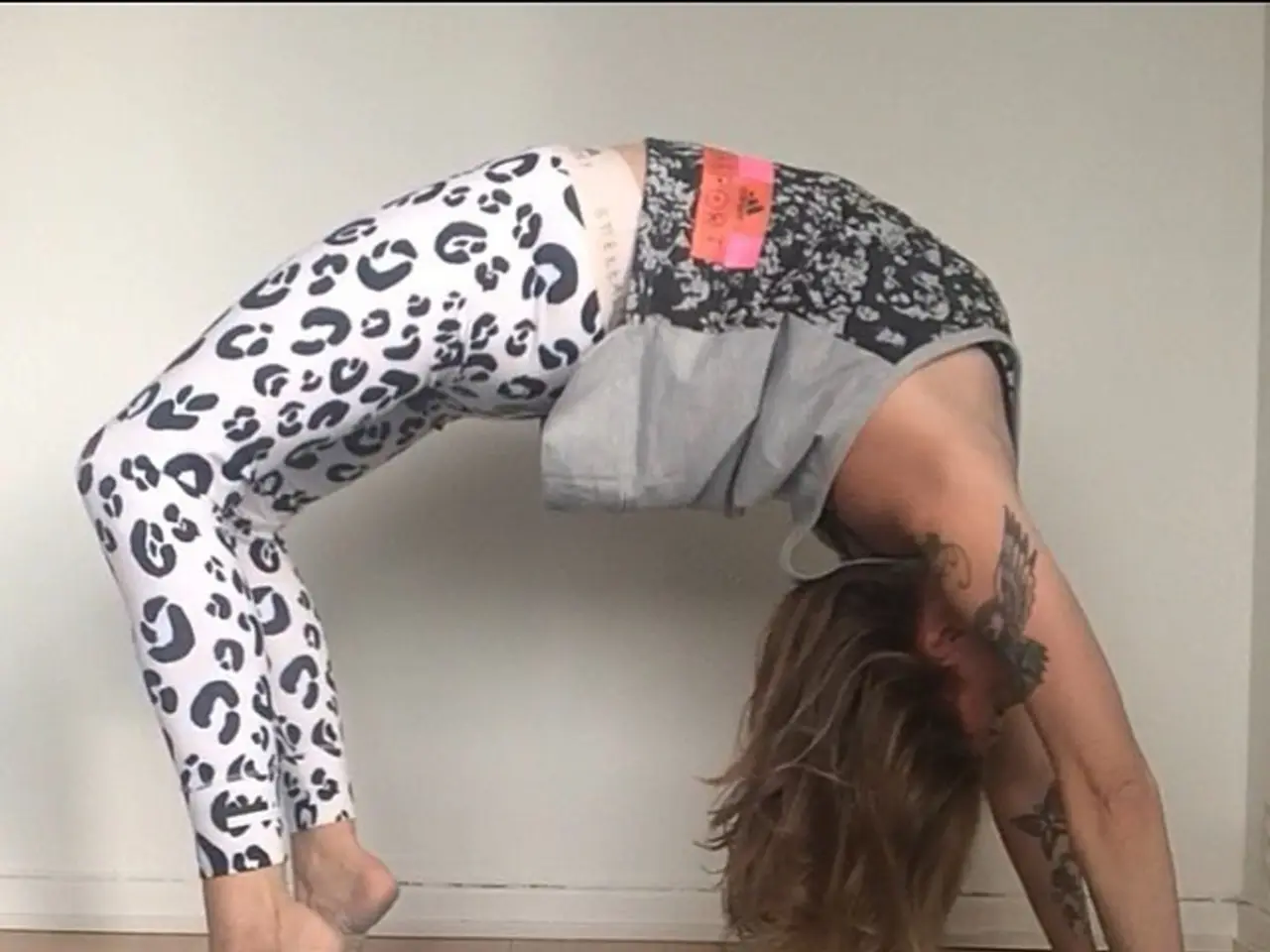Invigorate and rejuvenate your radiant complexion through the practice of facial exercises, aka "face yoga"
In the quest for a more youthful appearance, face yoga has emerged as an intriguing option. This practice, also known as facial exercises, aims to improve muscle strength, blood circulation, and overall skin appearance.
The goal of face yoga is simple: to stimulate collagen production, reduce fine lines, and strengthen facial structure through consistent exercises and muscle engagement. By performing specific movements and stretches designed to tone the muscles in the face and neck, face yoga can potentially offer a safe, non-invasive, low-cost, and natural approach to anti-aging.
Research, including a notable 2018 study published in JAMA Dermatology, has found that regular facial exercises over 20 weeks led to visible improvements such as fuller cheeks and participants appearing about three years younger. The exercises may increase collagen and elastin production by boosting blood flow and lymphatic drainage, helping to reduce puffiness, dark circles, and improve skin tone. Additionally, face yoga can enhance mental well-being and reduce stress, which might indirectly benefit skin health.
However, it's important to note that scientific evidence remains limited and mixed. Some studies show moderate effects on muscle fullness but little to no direct effect on wrinkles and fine lines. The improvements from face yoga generally develop gradually and require consistent, long-term practice, and results vary across individuals.
In contrast, plastic surgery produces immediate, more dramatic, and longer-lasting results in reducing wrinkles, tightening skin, and altering facial structure. However, it is invasive, costly, and carries risks of complications.
Anti-aging creams, depending on ingredients like retinoids, peptides, or antioxidants, can moderately improve skin texture and reduce fine lines with regular use. However, they usually provide less substantial lifting or firmness compared to surgery.
Combining facial yoga with comprehensive skin care can enhance the effectiveness of anti-aging products and sun protection. Five effective face yoga exercises include The Brow Lift, The Forehead Lift, The Cheek Lift, The Jawline Lift, and The Neck Stretch.
Patience is necessary when practicing facial yoga, as improvements may take several weeks or months to be noticeable. To avoid exacerbating wrinkles, it's important not to frown or squint too much during exercises.
Coco Hayashi, a face yoga instructor, suggests a 30-minute daily routine for at least five months to potentially gain a couple of years of youth. The Neck and Jaw Stretch exercise involves tilting the face slightly up and lifting the chin up and forward at a 45-degree angle to one shoulder, holding for three seconds, then returning to center and repeating on the other side. This exercise should be repeated 20 times on each side or for a few minutes.
In conclusion, face yoga offers a promising, natural approach to anti-aging that may complement other treatments or serve as a preventive measure. However, it does not replace the more pronounced effects of plastic surgery or scientifically formulated anti-aging topical products. Consistency is key when it comes to face yoga; experts recommend practicing face yoga daily for optimal results.
- To supplement anti-aging topical products, one could consider incorporating face yoga exercises into a daily routine, such as Coco Hayashi's 30-minute routine that includes The Neck and Jaw Stretch.
- The style of face yoga incorporates specific movements and stretches designed to tone face and neck muscles, stimulate collagen production, and reduce fine lines.
- For those who seek a low-cost, natural, and non-invasive approach to maintaining health-and-wellness and improving skin-care, face yoga offers a potential alternative to traditional fitness-and-exercise regimens.
- Lifestyle choices that prioritize fashion-and-beauty and home-and-garden may find synergy with face yoga practices, as a consistent, long-term face yoga routine can indirectly benefit one's mental well-being and reduce stress, which might further contribute to overall health.








